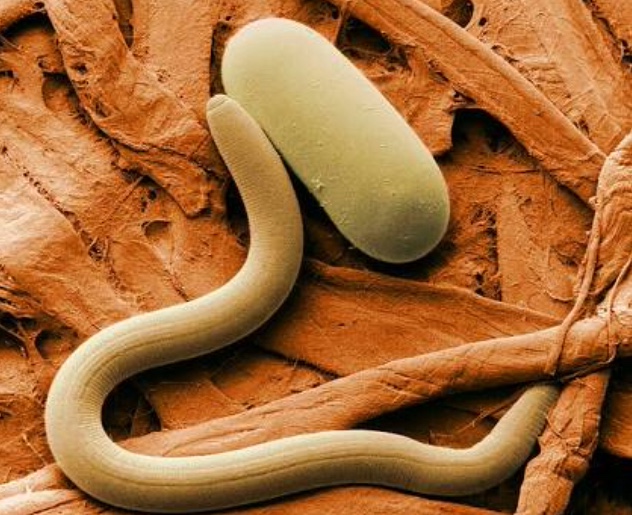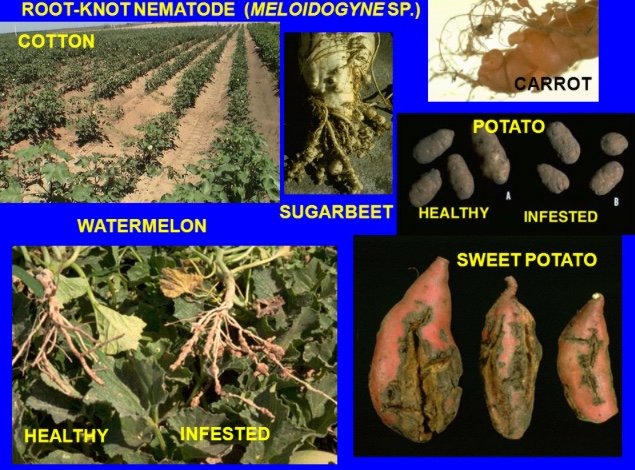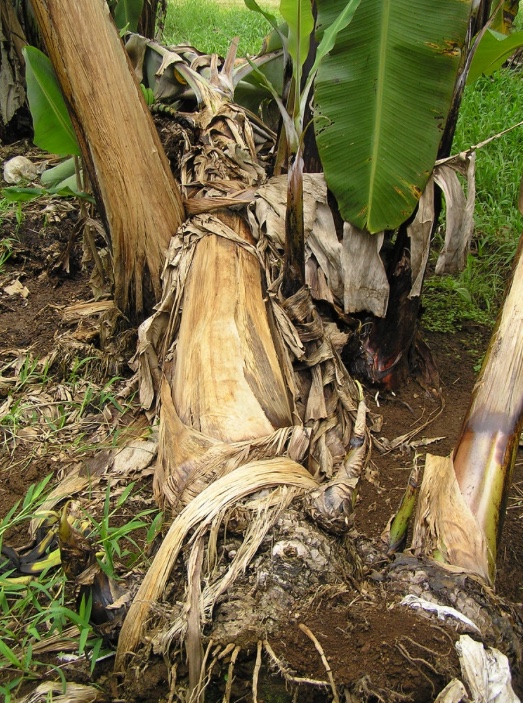
A
Introduction
Nematology is the scientific study of nematodes(round worms). You could also say it’s the science that studies nematodes.
You may be wondering what nematodes are, right now.
Well, nematodes are round worms in the phylum Nematoda also called nemathelminthes.
I’ll be focusing on the Plant parasitic nematodes(PPNs).
PPNs are basically unsegmented, microscopic, mostly worm-like organisms that possess stylets with which they derive or get their nutrients from the plants they attack.

I will briefly explain the different research areas involved in understanding nematology
Which includes:
• Diagnostic Surveys
• Crop Loss Assessment
• Biology and Ecology of plant- parasitic nematodes
• Physiological aspects of parasitism
• Morphological aspects of parasitism
• Biochemical aspects of parasitism and finally
• Nematode Management.
This is a very broad topic and I’ll try my best to give a brief summary.

1
DIAGNOSTIC SURVEY; This is essential in nematology, as it enables scientists and researchers to determine a proper control method and also validates a research conducted on nematodes. It is normally conducted in the field with the essence of establishing nematode-crop relationships.(this could also be achieved through controlled greenhouse studies)
2
CROP LOSS ASSESSMENT;This study also know as pathogenicity is carried out to determine the effects of plant parasitic nematodes on specific crops. The study is carried out to determine the importance of otherwise of the nematode on a crop and its carried out both in the green house and on the field. $85 billion dollars of crop losses is recorded to be caused by nematodes worldwide each year.
3
BIOLOGY AND ECOLOGY OF PLANT PARASITIC NEMATODES; in the study of nematodes It is very essential to study the life cycle (generation time, mode of spread, etc) of Plant parasitic nematodes because its knowledge helps to develop an appropriate control method.It is equally important to understand the behavior of nematode populations in response to different components of the environment
Ecological studies are studies on factors that influence the growth and development of Plant parasitic nematodes.These may involve studies on simulated or in situ changes in biotic and abiotic factors.Different studies are also conducted to determine how Plant parasitic nematodes interact with other organisms with which they share the same environment.
4,5,6
PHYSIOLOGICAL, MORPHOLOGICAL AND BIOCHEMICAL ASPECTS OF NEMATODE PARASITISM;These are studies carried out to understand the role of Plant parasitic nematodes in the physiological processes of affected plants, as well as determine how the Plant parasitic nematodes (PPNs) alter the food value of infected plants.The processes include respiration, photosynthesis and Plant water relationship.The Plant parasitic nematode being an obligate parasite, must derive its food requirements from plant cells if it is to complete its life cycle(Ultra-structural aspects of nematode parasitism).
The host and parasite relationship jointly develops in nature in order to amass genes for balance in its co-existence and this genes are presumably functioning during both offensive and defensive interactions. The host-nematode interaction is concerned with the struggle between plants and pathogens, and this has been and unremitting challenge throughout their co-evolution. Such interactions are often highly complex.
Phytoparasitic nematodes have developed sophisticated offensive strategies to parasitize plants, while plants have developed a versatile defense mechanism against the pathogens attack.This relationship isn’t always in the favour of plants as the nematodes are very prolific and destructive.
[7] NEMATODE MANAGEMENT;This, to me, is the most important aspect in nematology. I’ll be sharing pictures of nematode infected crops and the nematode almost free ones.
This should trigger our interest in nematology and make us look deep into ways in which we could manage Plant parasitic nematode effectively.Several chemical and non-chemical control options have been evaluated for the control of Plant parasitic nematodes but emphasis is more on non-chemical control options on account of being conscious of the environment to avoid pollution.
Stages in nematode assessment and management
Stage 1: Look for and assess symptoms of nematode damage
Stage 2: Collect soil and plant tissue samples
Stage 3: Select or extract nematodes from samples
Stage 4: Identify nematodes
Stage 5: Nematode density assessment
Stage 6: Nematode damage analysis
Stage 7: Management decision
Photos of nematode infected crops

B
The image B above shows the pictures of different crops affected by *melodogyne spp A root knot nematode.

C
*toplling in banana caused by Radopholus simulus
Nematodes can be controlled using different methods which includes
Regulatory method which is basically quarantine.
Cultural method which involves crop rotation, use of resistant varieties, use of organic amendments, ploughing and fallowing.
Physical method which involves
Heat treatment of the soil, solar drying, soil pasteurization, floatation of seeds etc
Biological method which involves the use of bio-control agents like fungi, bacteria, mites, arthropods and even nematodes too can kill feed on other nematodes thereby acting as a bio-control agent.
Chemical control which involves the use of soil fumigants and nematocides.
Click here to find detailed explanations in nematode management.

References
Image sources
A
THANKS FOR READING
Being A SteemStem Member
Downvoting a post can decrease pending rewards and make it less visible. Common reasons:
Submit
very educative post on nematodes. Few people know they even exist and their effects.
Downvoting a post can decrease pending rewards and make it less visible. Common reasons:
Submit
Nice one
You can equally check, comment and upvote my blogs
Downvoting a post can decrease pending rewards and make it less visible. Common reasons:
Submit
Very educative...nice one dear
Downvoting a post can decrease pending rewards and make it less visible. Common reasons:
Submit
I like the way you structured your post. Thanks for sharing
Downvoting a post can decrease pending rewards and make it less visible. Common reasons:
Submit
With the first pic, I was like... Yuck! Snakes!
But then, I read through and found out it was about nematodes and learnt alot!
Downvoting a post can decrease pending rewards and make it less visible. Common reasons:
Submit
Interesting article @florae, I feel like calling you doc* ☺ good science talk dear, keep it up!!
Downvoting a post can decrease pending rewards and make it less visible. Common reasons:
Submit
Your writing is just getting better daily dear
Downvoting a post can decrease pending rewards and make it less visible. Common reasons:
Submit